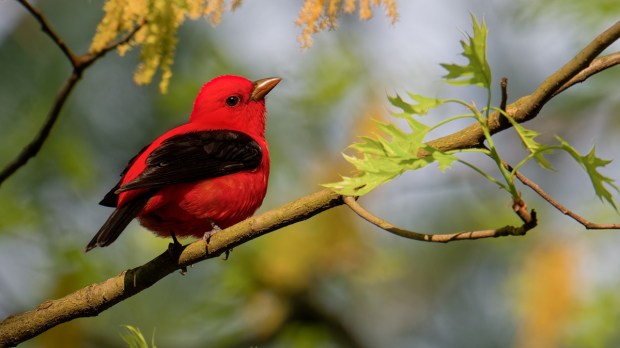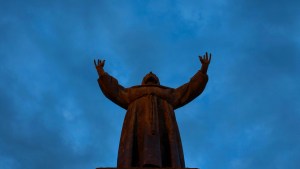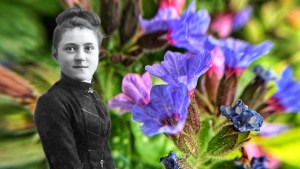This coming Saturday, May 4, fans of R2D2 and Baby Yoda will be celebrating Star Wars Day. (May the 4th be with you! Get it?) And while I will certainly raise a glass of blue milk to a galaxy far, far away with my fellow sci-fi geeks, mostly I’ll be focused on a more important event — I refer, of course, to Bird Day, which was first established back in 1894.
Now I recognize there is a glut of “awareness days” out there. There is a World Emoji Day (July 17), an International Lefthanders Day (November 13), and doughnuts get their own week (May 18-26). But unlike most of the silly things that now clutter up our calendars, birds really do rate their own day and deserve to be specially acknowledged.
First of all, let’s remember that birds are actually tiny flying dinosaurs. That should be enough for any rational human to marvel at and celebrate their existence. Then there is the fact that our feathered friends play a critical role in maintaining Earth’s ecosystems. Birds also happen to be stunningly gorgeous. Let’s be honest, when God finally got around to creating birds, He was just showing off: “You think tropical fish are amazing? Well, check this out!”
Convinced yet? Here are some suggestions for celebrating Bird Day:
Pray to St. Milburga of Wenlock
Not only does St. Milburga have one of the coolest saint names ever, but she is also the patron saint and protector of birds. A royal princess who became an abbess, one of St. Milburga’s many, many miracles was to convince a flock of wild birds to fly away from a farmer’s field before they devoured his crops.
My advice: On May 4, ask for St. Milburga’s intercession, requesting that she protect the birds in your neighborhood. Also, don’t forget to thank God for creating such winged wonders.
Choose native plants for your garden
Many people have bird feeders in their yards. That remains a great option for the winter when birds have a harder time finding food. During spring and summer, providing native and “seedy” plants are a preferred option, however. Native plants will attract all sorts of local birds and you won’t also be feeding squirrels, raccoons, or bears – all of which are convinced that you actually put those bird feeders out for them.
You will be amazed at the birds you attract when you plant native flora. A few years ago, my wife added local woodland sunflowers to her garden. It turned out that goldfinches love these flowers. On lazy summer afternoons, we watch the bright yellow finches happily flying about and feasting on the sunflowers.
Go on a bird walk
Walk around your neighborhood and see how many different types of birds you can identify. The National Audubon Society even has a bird identification app for smartphones. You might also consider joining a local birdwatching group. It’s a great way to make new friends and turn your birding adventures into a communal activity.
Birdwatching is also a wonderful activity for families.
Listen to birdsongs
A 2022 study indicates that listening to birdsongs improves mental health. I’m not sure we needed scientists to prove this, however. Who doesn’t love waking up to the singing of birds outside? The sound of a single chirping bird is often enough to restore our connection to the natural world and make us recognize the goodness of creation.
And since there is an app for just about anything these days, you can be assured that there are several that help you identify bird sounds. The Cornell Lab has a wonderful website with lots of fascinating facts about birds, including tips for learning to identify birds by sound. They also participate in a daily two-minute podcast, BirdNote Daily that deals with all things avian.
Support bird conservation efforts
Unfortunately, many bird species are endangered or experiencing population decline. The Cornell Lab lists 10 simple ways you can help birds. Also consider joining and supporting organizations that promote bird conservation.
Take bird pics
You don’t need to be a professional photographer to take and share pictures of birds (though having a zoom lens does help). Take Steve Hubbard, for example.
An accomplished scientist, Steve also taught for 28 years at the NYU Grossman School of Medicine. When he wasn’t publishing research or grading papers, he discovered that he had an eye for photographing birds. Steve recently retired from teaching, but he still takes acclaimed bird pics, which he shares on his Instagram page, @irkvelo.
In honor of this coming Bird Day, Steve Hubbard has shared some of his favorite recent bird photos with Aleteia readers. I can think of no better way to celebrate!
Visit the PHOTO GALLERY below to see The Wondrous Bird Photography of Steve Hubbard.




